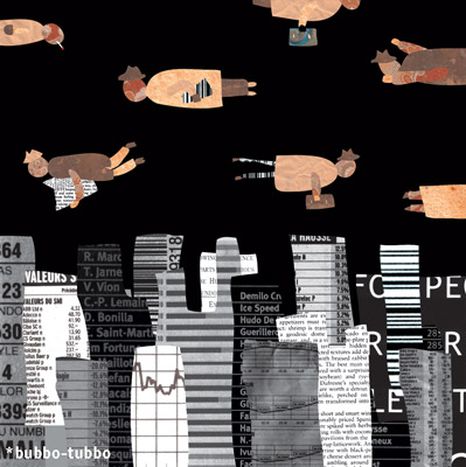
Hungary's new media law no surprise for Europe
Published on
The 'media act' was passed on 21 December in Hungary and was implemented on 1 January 2011. It's not such a derogation in Europe, because the context of this law is nothing more than just another sign of an alarming trend in Europe
On 1 January Hungary took over the rotating presidency of the council of the EU from Belgium. But while the latter succeeded in keeping its domestic politics out of the limelight for six months, Hungary fights public criticism and disgrace because of a new media law called 'on media services and mass media'. Critics say this law will greatly restrict press freedom and constitutes a direct threat to democracy. The European commission is investigating whether the contentious legislation is compatible with EU law. It is now examining a 194-page translation of the new media law in an 'extremely complex and sensitive issue from a legal point of view'; the analysis may take up to several weeks or months.
Hungary's media law and the reaction
'Hungary’s new media law violates OSCE media freedom standards and endangers editorial independence and media pluralism,' stated the Organisation for Security and Co-operation in Europe (OSCE) on 21 December, the same day that the Hungarian ruling centre-right party Fidesz's law strengthened government control on the media. It creates a media authority which can impose fines of up to 700, 000 euros upon broadcasters and newspapers and 89, 000 euros for an online publication for violating ‘public interest, public morals or order’, yet without explicitly defining these concepts. International organisations such as reporters without borders, the international press association (API) and the European federation of journalists are mainly worried that Hungary is about to violate the charter of fundamental rights and the EU article on media freedom and pluralism. 'The time of Pravda [the leading Soviet paper - ed] is over' cried some political groups of the European parliament, with others releasing fierce press statements such as 'this draconian media law is an echo of Europe’s undemocratic past'. On 23 December Neelie Kroes, the EU digital agenda commissioner and former OSCE representative for media freedom, sent a letter to the Hungarian deputy prime minister to express her concerns. However a ‘wait and see’ attitude prevails; there's been no signs of intentions to set up an official legal analysis of the law.
Only on 5 January – the day before the official ceremony where Belgium passed the presidency flag to Hungary – did Barroso argue that 'media freedom is a sacred principle in the European Union', and aim to tie that thought in with his own official January visit to Budapest. International pressure has produced some results; although Hungarian prime minister Viktor Orbán initially stated that the law would not be amended because of criticism purely, a member of the Hungarian governing party pronounced his willingness to change the law 'if it was applied in a wrong way, or if there are problems'. However, an official statement from the Hungarian foreign affairs ministry said: 'Hungary is steadfastly committed to carrying out the programme of the EU rotating presidency, but at the same time firmly rejects any suggestions that raise doubts about the Hungarian EU presidency’s ability to act and suggestions of limiting the responsibilities of the presidency'. The prime minister's spokesperson even added that the 'media law is European to the last bit and they would not consider changing it.'
Europe: alarming media 'freedom' trend
We’ll have to wait some time for a thorough legal opinion in Europe. One ‘freedom of press index’, an annual survey of media independence in 196 countries by the NGO Freedom House, ranked EU countries as Italy, Bulgaria and Romania on the press freedom level 'partly free', alongside countries like Nigeria, Colombia or Sierra Leone. In 2009 MEPs narrowly rejected a European commission proposal to protect media pluralism in the European Union. The European parliament voted against press freedom in Italy (338 votes against, 335 for), which allowed Silvio Berlusconi to continue exercising influence on around 90% of Italy’s television audience. Several MEPs regretted a 'black day for press freedom in Europe'. In the same year a new law in the Czech Republic prohibited media from accessing wiretapped data; this was later challenged in the country’s constitutional court.
Please, don’t act surprised next time an EU country votes a dubious media law
Even if a substantive legal analysis proves that Hungary's media law is compatible with EU law, a possible directive on media pluralism or media freedom is – and will always be – very susceptible to political conflicts in the European parliament. Opinions vary from 'Europe shouldn’t interfere in domestic decisions that are not subject to the treaties' to 'such situations are an anomaly to European democracy and should be tackled before being exported to other countries'. It will always remain difficult to streamline diversity or pluralism in media, because in the end it is about morals and values. But please, don’t act surprised next time an EU country votes a dubious media law. Nobody can deny that Europe has a problem with press freedom.
Image: main (cc) bubbo-tubbo/ Flickr



